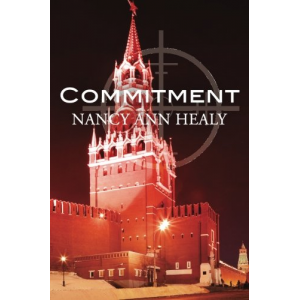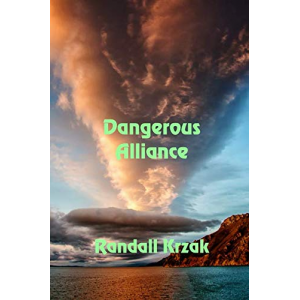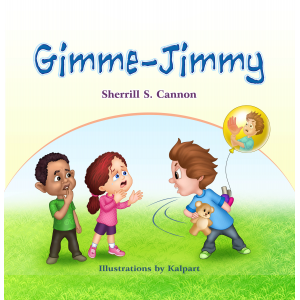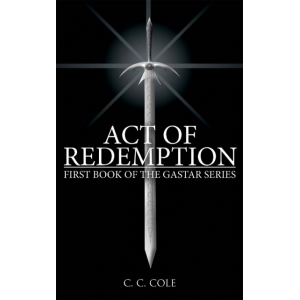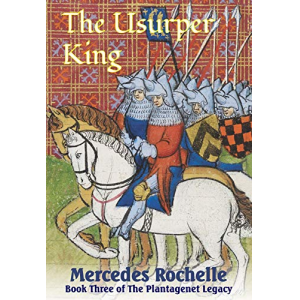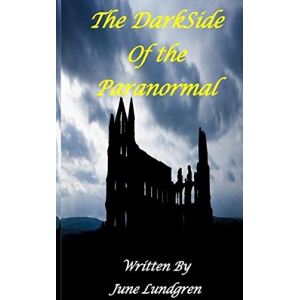- Author
- Book
- Story behind the book
- Media Links
- Reviews

Libby Fischer Hellmann
About
Crime fiction author LibbyFischer Hellmann claims she’s “writing her way around the genre.” With ninenovels and twenty short stories published, she has written thrillers, suspensemysteries, historicals, PI novels, amateur sleuth, police procedurals, and evena cozy. At the core of all her stories, however, is a crime or the possibilityof one -- the more political, the better.
She is a transplant fromWashington, D.C., where, she says, “When you’re sitting around the dinner tablegossiping about the neighbors, you’re talking politics.” Armed with a MastersDegree in Film Production from New York University, and a BA in history fromthe University of Pennsylvania, she started her career in broadcast news. She began as an assistant film editor at NBC Newsin New York, but moved back to DC where she worked with Robin McNeil and JimLehrer at N-PACT, the public affairs production arm of PBS. When Watergatebroke, she was re-trained as an assistant director and helped produce PBS’snight-time broadcasts of the hearings.
In 1978, Hellmann moved toChicago to work at Burson-Marsteller, the large public relations firm, stayinguntil 1985 when she founded Fischer Hellmann Communications. Currently, when not writing, she conducts speaker trainingprograms in platform speaking, presentation skills, media training, and crisiscommunications. Additionally, Libby also writes and produces videos.
Her first novel, AN EYE FOR MURDER, whichfeatures Ellie Foreman, a video producer and single mother, was released in2002. Publishers Weekly called ita “masterful blend of politics, history, and suspense,” and it was nominatedfor several awards. That was followed by three more entries in the EllieForeman series, which Libby describes as a cross between “Desperate Housewives”and “24.”
A few years later, Libby introduced her secondseries featuring hard-boiled Chicago PI Georgia Davis, which Chicago Tribune describes as, “a new no-nonsensedetective …. tough and smart enough to give even the legendary V.I. Warshawskia run for her money.” There arethree books in that series so far: EASY INNOCENCE (2008) and DOUBLEBACK (2009), which wasselected as a Great Lakes Booksellers’ Association “2009 Great Read,” and TOXICITY(2011), a police procedural ebook thriller that became the prequel tothe Georgia Davis series.
Her 7th novel, SETTHE NIGHT ON FIRE, (December, 2010) was a standalone thriller that goesback, in part, to the late Sixties in Chicago. Publishers Weeklydescribes it as “top-rate” and says, “Ajazzy fusion of past and present, Hellman's insightful, politically chargedwhodunit explores a fascinating period in American history.” It wasshort-listed for ForeWord Magazine’s Book of 2010 in the suspense/thrillercategory.
Her most recent novel, ABITTER VEIL, xxx
Libby has also edited a highlyacclaimed crime fiction anthology, CHICAGO BLUES (October, 2007). InMay, 2010, she published a collectionof her own short stories called NICE GIRL DOES NOIR. In 2005-2006she was the National President of Sisters in Crime, a 3,400 plus memberorganization committed to strengthening the voice of female mystery writers.
Libby blogs at “SAY THE WORDAnd You’ll Be Free,” http://libbyhellmann.com/wp, and also at “The Outfit Collective” at www.theoutfitcollective.com.
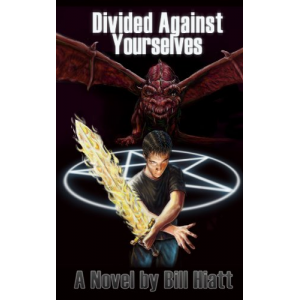
Divided against Yourselves (Spell Weaver)
Description
<h2>Taliesin Weaver thought that he had saved himself and his friends when he defeated the witch Ceridwen. He was wrong.</h2><h3><i>He always thought of evil as embodied in external threats that he could overcome in combat. Soon he will discover that the worst evil has been inside of him all along....</i></h3><p>Tal’s girlfriend is in a coma for which he holds himself responsible. A close friend, suffering from a past-life memory trauma similar to Tal's, is getting worse, not better. Morgan Le Fay is still lurking around and has an agenda Tal can’t figure out. Supernatural interruptions in his life are becoming more frequent, not less so, despite his expectations. In fact, Tal learns that something about his unique nature amplifies otherworldly forces in ways he never imagined were possible, ways that place at risk everyone close to him.</p><p>Tal and his allies must face everything from dead armies to dragons. As soon as they overcome one menace, another one is waiting for them. More people are depending on Tal than ever; he carries burdens few adults could face, let alone a sixteen-year-old like himself. Yet somehow Tal at first manages to handle everything the universe throws at him.</p><p>What Tal can’t handle is the discovery that a best friend, almost a brother, betrayed him, damaging Tal’s life beyond repair. For the first time, Tal feels a darkness within him, a darkness which he can only barely control...assuming he wants to. He’s no longer sure. Maybe there is something to be said for revenge, and even more to be said for taking what he wants. After all, he has the power...</p><p> </p><h2><u>Can Tal stop himself before he destroys everyone he has sworn he will protect? Scroll up to buy a copy and find out!</u></h2>
Story Behind The Book
TRUE CONFESSION: I do remember the Sixties. Especially 1968. That was the turning point in my political "coming of age." I was in college in Philadelphia on April 4th when Martin Luther King was assassinated. I watched as riots consumed the inner cities. I was saddened and disappointed -- as a teenager growing up in Washington DC, I'd gone to plenty of concerts at the Howard theater where blacks and whites grooved to Motown artists together. I actually thought we were moving towards a color-blind society -- I was young and idealistic then). So the frustration and rage expressed through the riots was - in a way- confusing. Two months later I understood. My college boyfriend had been tapped to head up the national "Youth for Bobby Kennedy" program. I was really excited; I planned on dropping out for a semester to work with him. For some reason I couldn't sleep the night of June 5th and turned on my radio. Bobby had been shot just after winning the California Democratic primary. He died the next day. So much for the Youth for Kennedy campaign. Sadness soon gave way to bitterness. The country was falling apart. Over the years some of our brightest lights had been snuffed out. Internationally our government seemed to be supporting the "bad guys." And underlying it all was an unwinnable war that - perversely -- was escalating and risking the lives of my peers. I began to question why I should work through the system, especially when the system wasn't working for us. I wasn't alone. Plenty of others yearned for change. Fundamental change that would rebuild our society and culture. The next few years were tumultuous and volatile, but in the final analysis, we failed. Maybe the task was impossible -- how many Utopias exist? Sure, there were cultural shifts. But political change, in the sense of what to expect from our leaders and our government? Not so much. The era left me with unresolved feelings. What should we have done differently? Are all progressive movements doomed to fail? At this point you're probably wondering what this has to do with writing a thriller. And you'd be right. It's never been my intention to write a political screed. I am a storyteller whose stories, hopefully, you can't put down. I realized that if I was going to write about the Sixties, I needed a premise that would hook readers in the present, regardless of how much they know or remembered about the Sixties. I found that premise in a film. Do you remember SIGNS, starring Mel Gibson? It came out in 2002, and I thought the first half was the most riveting film I'd ever seen. Gibson's family is being stalked, but they don't know who and they don't know why. The second half of the film, when we discover it's just your garden variety aliens, was an enormous let down. Putting a face, an identity, on fear reduces its power. But NOT knowing who's targeting you -- or why -- is the most frightening thing I can imagine. So that's what happens to Lila Hilliard, a thirty-something professional who's come home to Chicago for the holidays. Someone has killed her family, and now they're after her. She has no idea who or why. As she desperately tries to figure it out, she finds wisps of clues that lead back to her parents' activities forty years ago. In the process she discovers that her parents were not the people she thought. The relationship between the past and present, the consequences of events that occurred years ago fascinate me. I also love stories that plunge characters into danger and make them draw on resources they didn't know they had. SET THE NIGHT ON FIRE was the way to combine all those themes. Writing the book was an exorcism of sorts, a way to make peace with the past. And while I enjoyed reliving the past, I loved putting it behind me even more. I'm finally ready to move on. I hope you enjoy the read.
Media Links
Reviews
"A tremendous book - sweeping but intimate, elegiac but urgent, subtle but intense. This story really does set the night on fire." --Lee Child<br /><br />"A brilliantly-paced thriller, transitioning seamlessly from modern-day Chicago to the late '60s. First-rate characterization...Best to start early in the day, as it is easy to stay up all night reading it." --Foreword Magazine<br /><br />"RT Top Pick for December: "Electric... a marvelous novel."<br />--RT Book Reviews<br /><br />"<em>Set the Night on Fire</em> is a compelling story of love, truth and redemption. This will be a break-out novel for this talented writer. Highly recommended." --Sheldon Siegel, NYTImes bestselling author of Perfect Alibi<br /><br />"A dazzlingly authentic novel that takes us back to the passions of the Sixties." --Kindle Daily Nation

